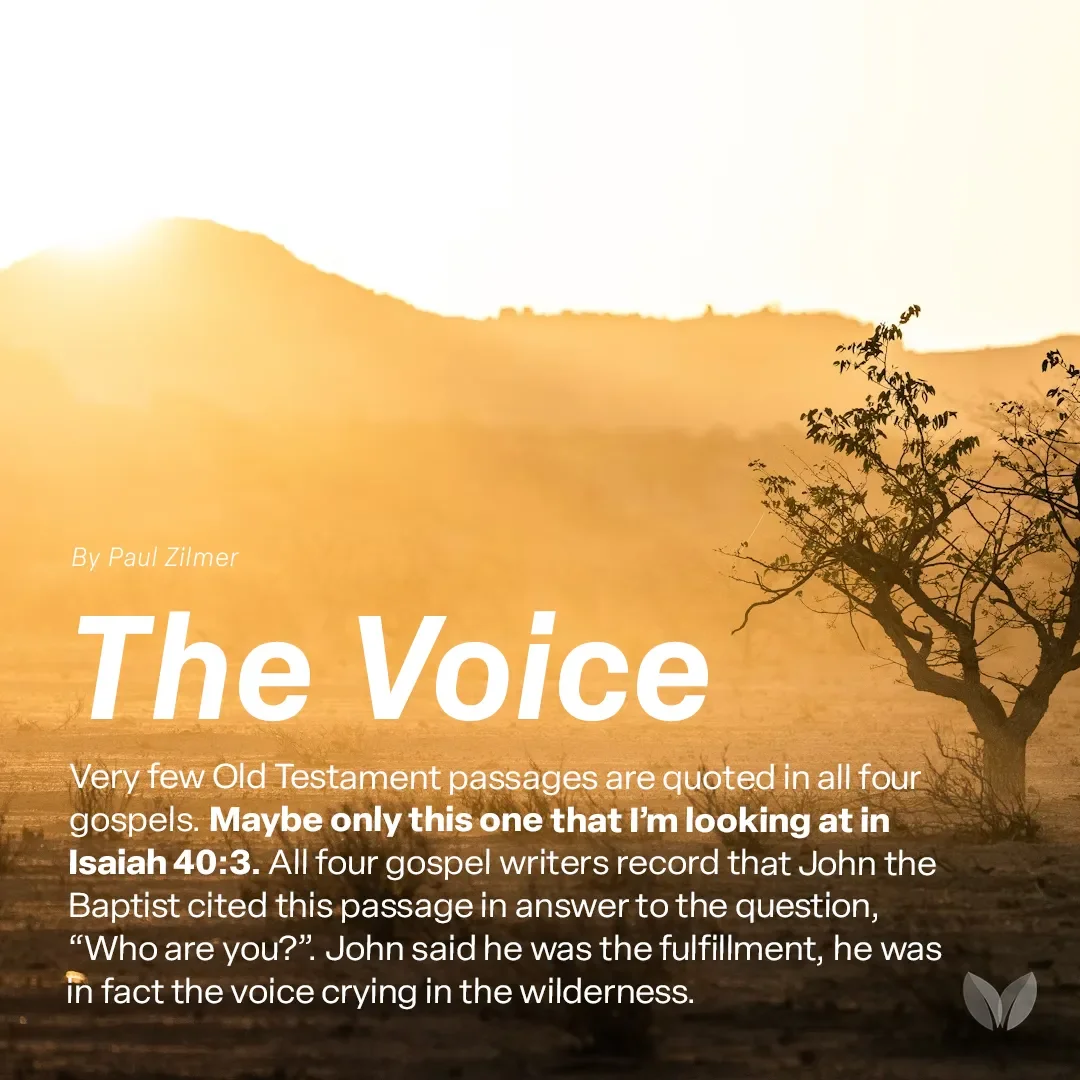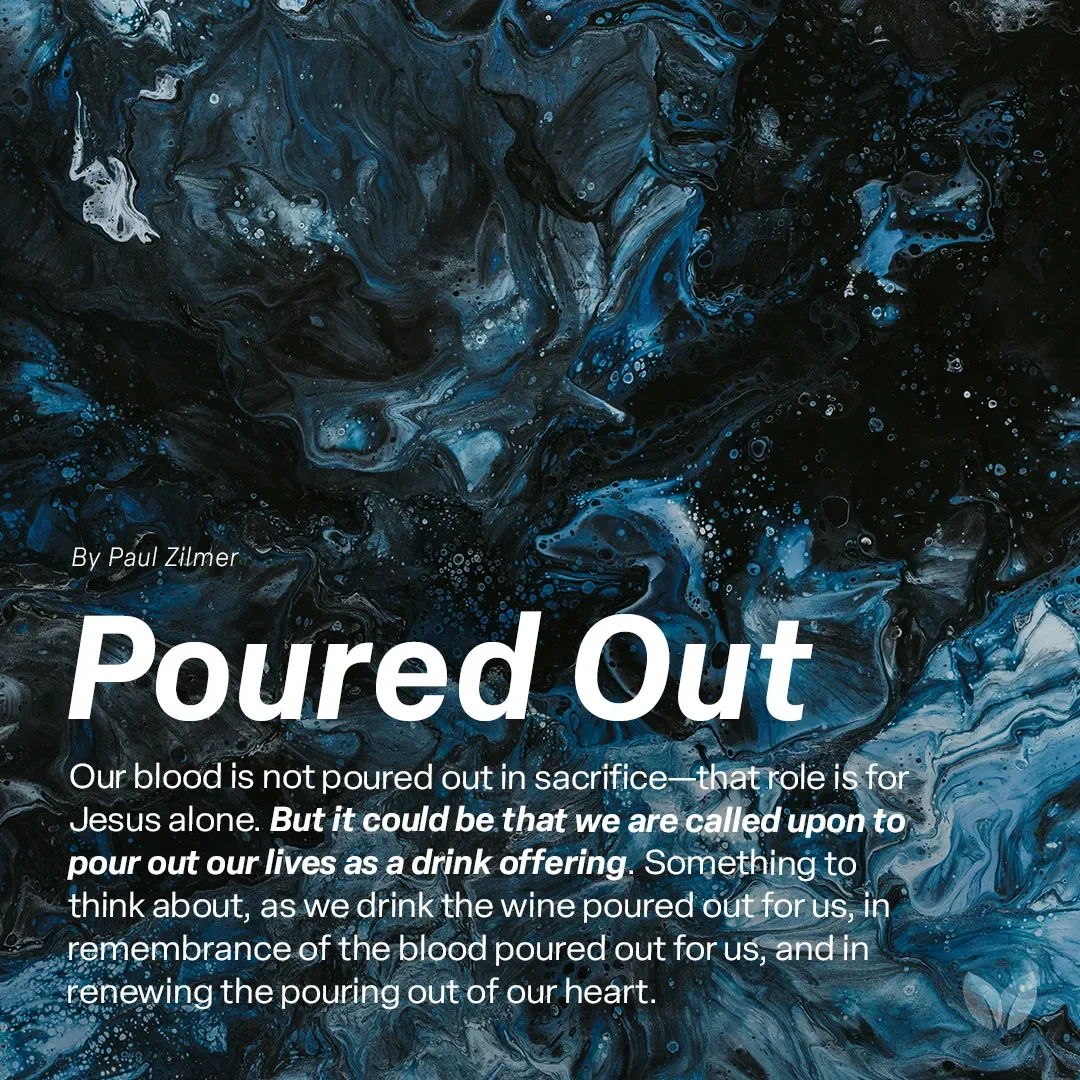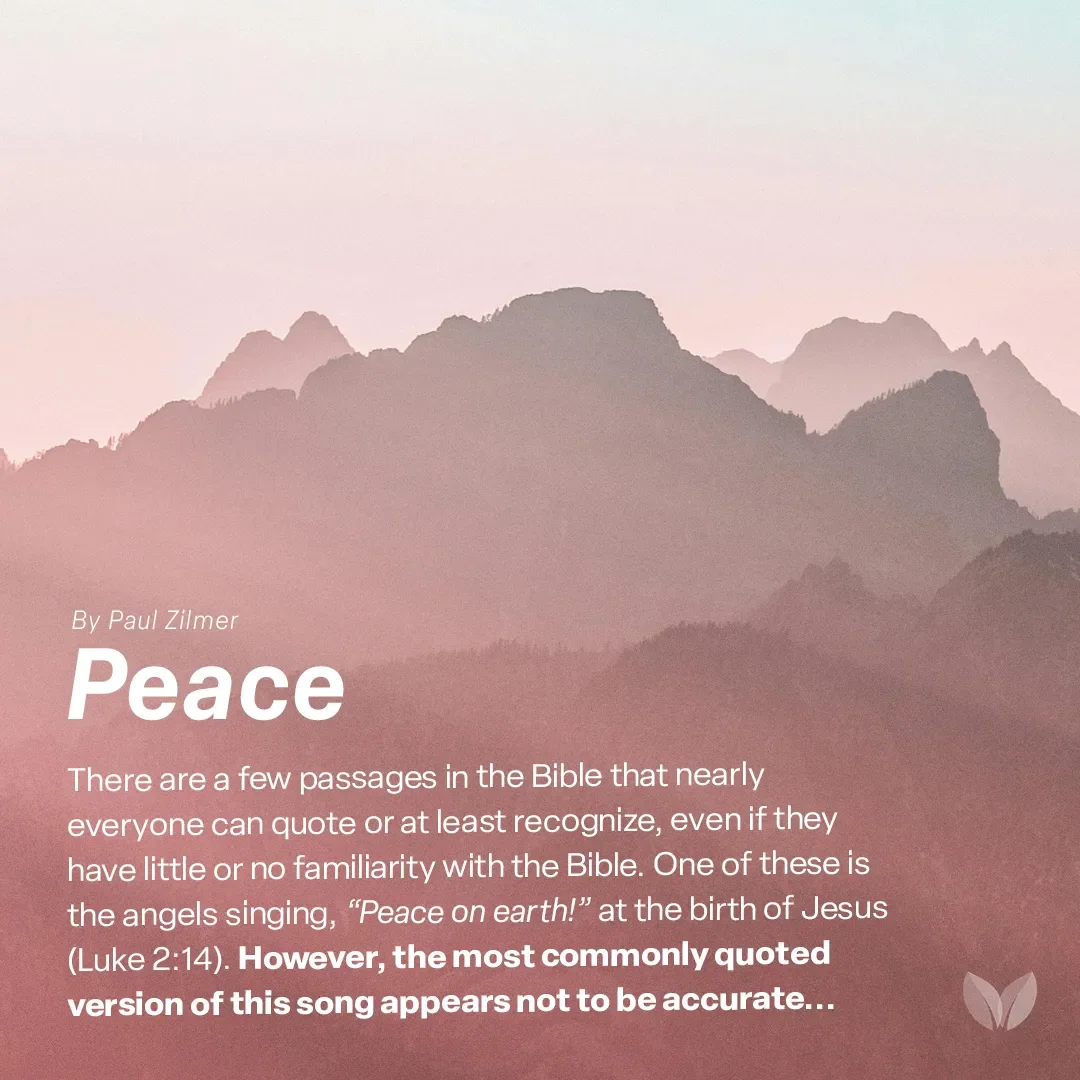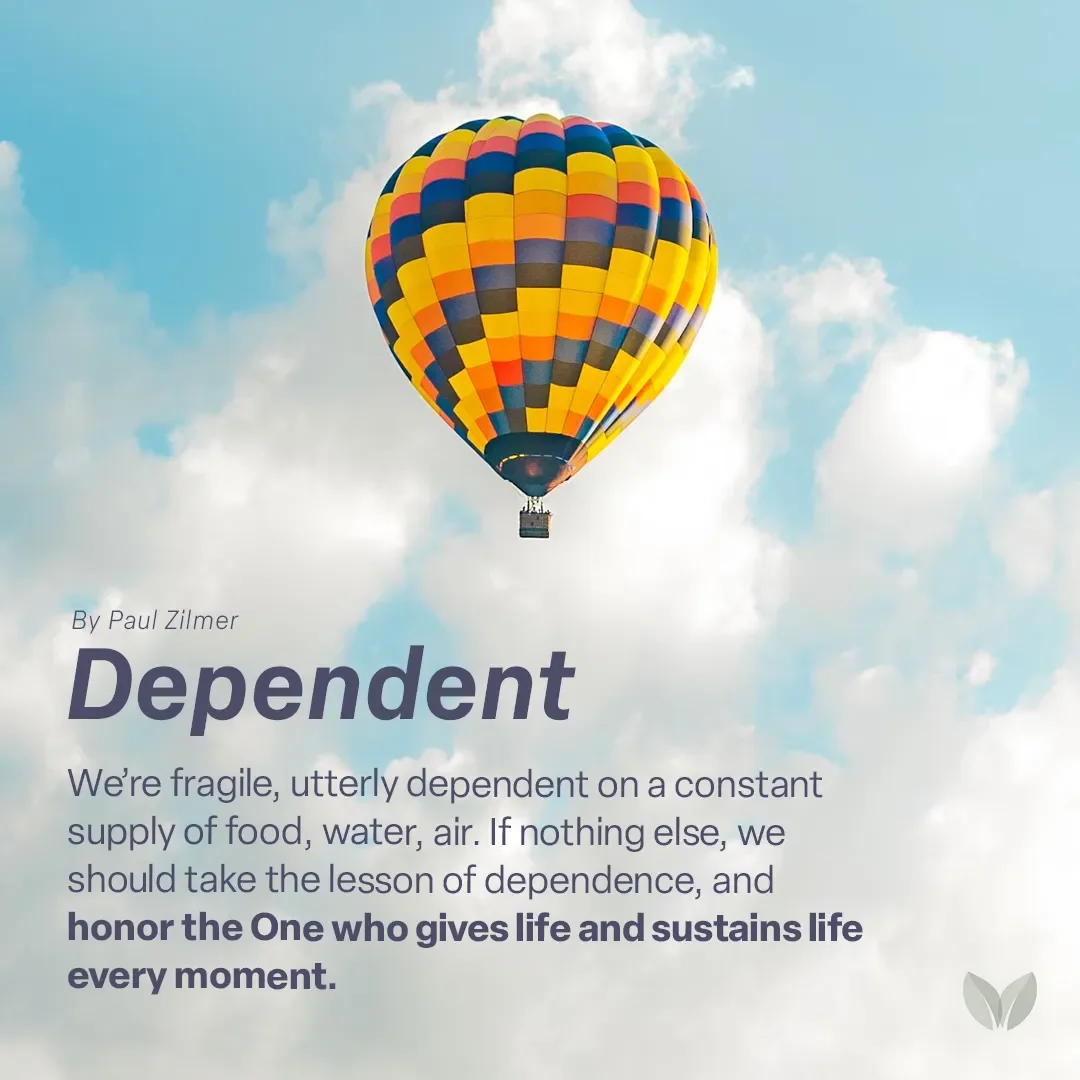WCF Blog

Give thanks
Where does your food come from? Mine comes from a grocery store or occasionally a farmers’ market. Perhaps you raise some yourself. (I have a couple of tomato plants, but that’s all.) If you’re a farmer or rancher you raise a lot of it yourself, and in fact you are where my food comes from, although it may pass through several layers of middlemen in between.

Shorter days
Where I live in North America, the days are getting shorter. Summer is just about over, and with the shorter days we know that autumn is almost here.

The Voice
Very few Old Testament passages are quoted in all four gospels. Maybe only this one that I’m looking at in Isaiah 40:3. All four gospel writers record that John the Baptist cited this passage in answer to the question, “Who are you?” John said he was the fulfillment, he was in fact the voice crying in the wilderness.

Questions
Jesus asked questions. As we know, this is an effective teaching technique. Several of his questions were directed to people who were trying to challenge him, and his questions fired the challenge right back at them. We may not feel like we’re doubting or challenging him, but I think we can benefit from taking his questions to heart. Part of the effectiveness of teaching by asking questions happens when we explore the “question behind the question”, as it’s sometimes called. Let’s look at a few.

Seeing his day
In the final year of his ministry, controversy over Jesus was ramping up, especially in Jerusalem. Rather than try to smooth things out, the Teacher did and said things that actually fed the controversy. John 8 records a series of confrontations with the religious authorities, which left the authorities boiling and the disciples confused.

Poured out
We’re all familiar with the service of remembrance established by the Lord, where (at his command) we eat a bit of bread and drink a bit of wine. The Lord explicitly tells us they are symbols, and he explains them. Regarding the wine, he says:

Formative years
Sometimes childhood is referred to as our “formative years”. We learn our first language and a whole lot of other firsts. We absorb attitudes and biases, along with skills and experiences, that strongly influence what we will become as adults. Even our taste in food is shaped.

Offend
In the culture I live in, it’s common to hear, “That offends me,” or, “I find that offensive,” or something similar. In English the dictionary definition of “offend” is: “To cause to be upset or to hurt the feelings of someone, esp. by being rude or showing a lack of respect.” And that’s exactly what people mean when they say one of those things. Culturally, it has come to be considered very negative, to cause someone to be offended.

Cost of following
Luke records three brief conversations Jesus had with would-be followers. They might not have all happened at the same time – Luke may have grouped them together because they all revolve around the same thing. My Bible, like some others, inserts little section headings to help you find what you might be looking for.

Doorkeeper
I’m sure you’ve heard Psalm 84:10 quoted any number of times: “I would rather be a doorkeeper in the house of my God than dwell in the tents of wickedness.” When someone quotes it they generally mean, “I would be very happy to have a lowly place as long as it’s in God’s house, rather than enjoy the (assumed) wealth or power gained by the wicked.”

Peace
There are a few passages in the Bible that nearly everyone can quote or at least recognize, even if they have little or no familiarity with the Bible. One of these is the angels singing, “Peace on earth!” at the birth of Jesus (Luke 2:14). This is generally taken as rejoicing in the one who will now bring peace to the earth. However, the most commonly quoted version of this song appears not to be accurate. Nearly all other versions render the lyric as, “Glory to God in the highest, and on earth peace among those with whom he is pleased!” or “On earth peace to those who have his good will!”


In person
I’m really looking forward to being at a week-long Bible retreat next week. There will be classes, and I look forward to hearing scriptural insights from the presenters. Importantly, there will also be time to interact with fellow believers, sharing ideas, sharing meals, sharing time. Sharing our faith, our hope and our love.

Gems
From time to time, I’ll be talking with someone and they’ll express that they don’t really like getting into Bible prophecy. I think what they mean is that they don’t enjoy trying to interpret the minute details, especially trying to figure out in advance what will happen in the “last days” – the time just before and after the return of Christ.

Deal Gently
Jesus is our High Priest. A major part of the book of Hebrews is devoted to discussing his priesthood. It’s referred to elsewhere too, not always using the term “priest” but meaning the same thing. For example, “For there is one God, and there is one mediator between God and men, the man Christ Jesus.” (1 Timothy 2:5)

How dare you!
How could anyone dare talk to God this way: “Awake! Why are you sleeping, O Lord?” (Psalm 44:23) What? How dare this writer? This is reminiscent of Elijah’s taunt of the prophets of Baal, at the contest on Mount Carmel:

Couples
It’s a wonderful thing to have a life partner in faith. Ecclesiastes puts it this way: Two are better than one… For if they fall, one will lift up his fellow. But woe to him who is alone when he falls and has not another to lift him up! Again, if two lie together, they keep warm, but how can one keep warm alone? And though a man might prevail against one who is alone, two will withstand him—a threefold cord is not quickly broken. (Ecclesiastes 4:9-12)


Perspective
The sun doesn’t rise, and doesn’t set. It’s the earth spinning, and since we’re stuck to the earth, from our perspective it appears that the sun moves across the sky. As the Beatles song says, “The fool on the hill sees the sun going down, and the eyes in his head see the world spinning around.” This “fool” has the true, accurate perspective.

From now on
The story is familiar. Early in his ministry, Jesus called four Galilean fishermen who were business partners: brothers Peter and Andrew, and brothers James and John. Matthew and Mark record that Jesus was walking along the Galilee lakeshore, encountered the men, and told them, “Follow me and I’ll make you fishers of men.” (Matthew 4:18-22, Mark 1:16-20)

